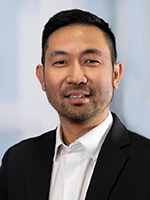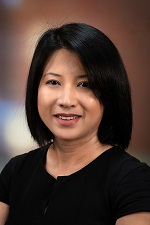Hematopathology Expert Series
Transforming Pathology Practice: Must-Know Technological Innovation in Hematopathology and Hematology
This comprehensive presentation and panel discussion will delve into the cutting-edge innovations that are reshaping the fields of hematopathology and hematology. The role of applied artificial intelligence (AI) in enhancing diagnostic precision and streamlining workflows will be covered. The panel will explore the impact of digital pathology and the latest advances in genetics and immunophenotyping, which have significantly improved our understanding of hematologic diseases.
Originally presented on May 29, 2024, in Salt Lake City, Utah.
Presenter
 | Robert S. Ohgami, MD, PhD, FCAP Professor |
Dr. Robert Ohgami is an internationally recognized leader in hematopathology and an active translational researcher. He received his undergraduate degree from Princeton University, received his medical and doctorate degrees from the Medical Scientist Training Program at the Harvard-Massachusetts Institute of Technology (MIT) Program in Health Sciences and Technology, and worked with Dr. Mark Fleming at Boston Children’s Hospital. Dr. Ohgami completed his residency and fellowship at Stanford University in anatomic pathology and hematopathology. He has been a researcher and clinical faculty member at Stanford University and the University of California, San Francisco (UCSF) and served in several leadership positions, including director of the Molecular Pathology Core, associate program director in Anatomic Pathology, and division chief of Hematopathology. He has authored over 200 peer-reviewed publications, abstracts, books, and chapters, which have been cited more than 4,000 times. He is an associate editor for Frontiers in Oncology and serves on the editorial board of multiple journals, including the Journal of Molecular Diagnostics. In 2016, he was recognized with the Berard-Dorfman Founders Award for his work in hematopathology. As a professor of pathology at the University of Utah School of Medicine, Dr. Ohgami is a firm advocate for the importance of being an effective mentor and supporting equity, diversity, and inclusion. He has received several mentorship and teaching awards over the years. Dr. Ohgami’s research interests include B- and T-cell lymphomas and rare diseases such as Castleman disease and blastic plasmacytoid dendritic cell neoplasms.
Dr. Ohgami is the vice president of the ARUP Institute for Research and Innovation in Diagnostic and Precision Medicine™ (R&I Institute). The R&I Institute serves as a focal point for innovation and cutting-edge research and seeks to improve the lives of patients by advancing groundbreaking diagnostic and prognostic technologies and innovative tests through industry and academic partnerships.
Host
 | Madhu P. Menon, MD, PhD, FCAP Associate Professor (Clinical) |
Panelists
 | Peng Li, MD, PhD Associate Professor (Clinical) |
 | Jay L. Patel, MD, MBA Professor (Clinical) |
Objectives
After this presentation, participants will be able to:
- Discuss the application and impact of AI in improving diagnostic accuracy, reducing turnaround times, and enhancing patient outcomes
- Recognize the advancements and implementation of digital pathology, including the digitization of slides and the significance of this technology in routine pathology practice
- Review the latest developments in genetics and immunophenotyping in the context of hematologic disorders, including how these techniques are used for disease characterization, prognosis, and personalized treatment planning
Sponsored by:
University of Utah School of Medicine, Department of Pathology, and ARUP Laboratories
 Site Search
Site Search






